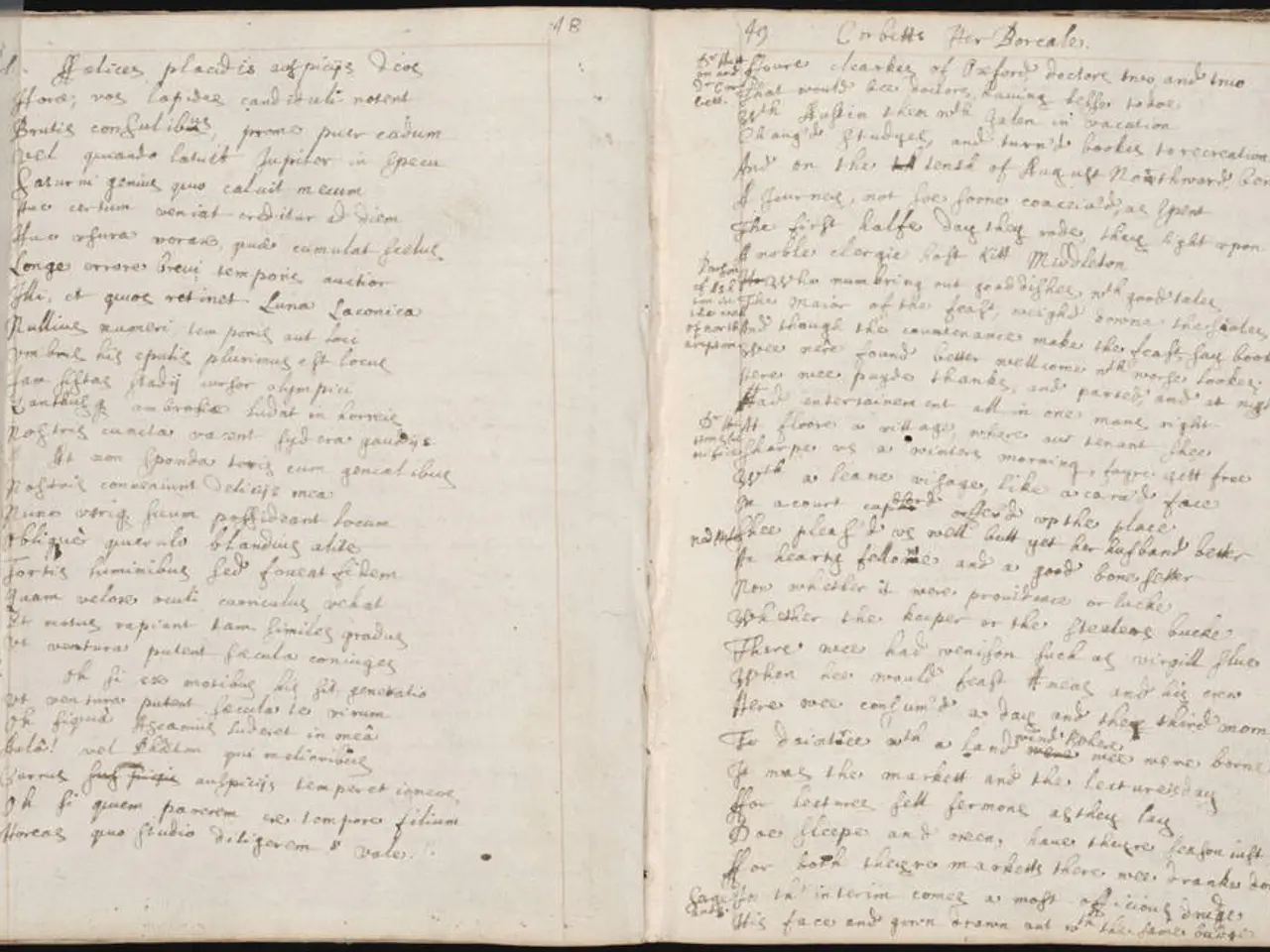Uncovering Pakistan's hidden narratives serves as a healing journey for one committed director
In the heart of Pakistan, a movement is taking shape, one video at a time. This movement, spearheaded by 38-year-old filmmaker Athar Abbas, is using digital storytelling as a powerful tool to address mental health issues among creative professionals and the general population.
Athar's journey into digital storytelling began after a depressive episode triggered by workplace rejection. Seeking solace, he found it in the camera, realising that art could be a greater therapy for an artist than any other. His work, which includes mini-documentaries, has attracted tens of thousands of followers and over a million views in the past year.
Athar's series, titled Untold Pakistan, focuses on documenting overlooked moments of life, such as fatigue, memory, longing, and resilience. His videos, often emotionally charged, have provided a therapeutic outlet for self-expression, reducing mental turmoil, and fostering a sense of community and empowerment.
The stigma around mental illness remains deeply entrenched, especially for men, in Pakistan. Talking about emotional vulnerability is often seen as weakness, a perception that is reinforced in professional environments. However, Athar's work has been instrumental in raising awareness about mental health issues in a stigmatized society.
In Pakistan's corporate sector, long working hours, harsh managerial practices, and lack of mental health policies contribute to high stress levels. The lack of formal emotional wellness programs, as highlighted by the Pakistan Society of Human Resource Management in a 2024 review, further exacerbates the problem.
Digital storytelling offers creative professionals and particularly youth in rural Pakistan a platform to share their unique voices and experiences, countering social isolation and disempowerment. Programs training rural youth in digital content creation have shown measurable impacts on wellbeing by enabling self-expression, economic opportunities, and community connection in otherwise marginalized spaces.
Athar's priorities have shifted, and he no longer aims to become an influencer. Instead, he states that he just needed to breathe. He has found a sense of accomplishment and identity in his work, providing a beacon of hope for others in a challenging environment.
Pakistan faces a chronic shortage of mental health services, with over 24 million people in need of psychiatric support. With only around 500 trained psychologists and 400 psychiatrists in the country, digital storytelling both heals individuals and fosters social awareness.
In conclusion, digital storytelling supports mental health by acting as a therapeutic, creative outlet to ease depression and anxiety, raising awareness about mental health issues, empowering marginalized groups, providing a sense of accomplishment, and fostering a sense of community and empowerment. This aligns with broader evidence on the mental health benefits of creative activities, which reduce stress and improve self-esteem and wellbeing.
- Athar Abbas, a filmmaker in Pakistan, uses digital storytelling to tackle mental health issues, particularly among creative professionals and the general population.
- Art played a significant therapeutic role in Athar's life, helping him overcome a depressive episode triggered by workplace rejection.
- Untold Pakistan, Athar's series, focuses on overlooked moments of life, like fatigue, memory, longing, and resilience.
- Athar's emotionally charged videos have served as a therapeutic outlet for self-expression, reducing mental turmoil, and fostering a sense of community.
- The stigma around mental illness is deeply entrenched in Pakistan, especially for men, with emotional vulnerability often seen as weakness.
- Athar's work has been instrumental in raising awareness about mental health issues in a stigmatized society.
- In Pakistan's corporate sector, long working hours, harsh managerial practices, and lack of mental health policies contribute to high stress levels.
- Lack of formal emotional wellness programs, as highlighted by the Pakistan Society of Human Resource Management, further exacerbates the problem.
- Digital storytelling offers a platform for rural youth to share their unique voices and experiences, countering social isolation and disempowerment.
- Efforts in training rural youth in digital content creation have shown positive impacts on wellbeing by enabling self-expression, economic opportunities, and community connection.
- Athar no longer aims to become an influencer but finds a sense of accomplishment and identity in his work.
- Pakistan faces a significant shortage of mental health services, with over 24 million people in need of psychiatric support.
- With limited psychiatric professionals, digital storytelling both helps individuals and fosters social awareness.
- The benefits of digital storytelling align with broader evidence on the mental health benefits of creative activities, which reduce stress and improve self-esteem and wellbeing.
- This approach to mental health support extends to various sectors, including world news, lifestyle, fashion-and-beauty, food-and-drink, home-and-garden, relationships, pets, travel, cars, education-and-self-development, personal-growth, shopping, career-development, sports, baseball, hockey, golf, sports-betting, basketball, racing, weather, tennis, sports-analysis, and mixed-martial-arts.






